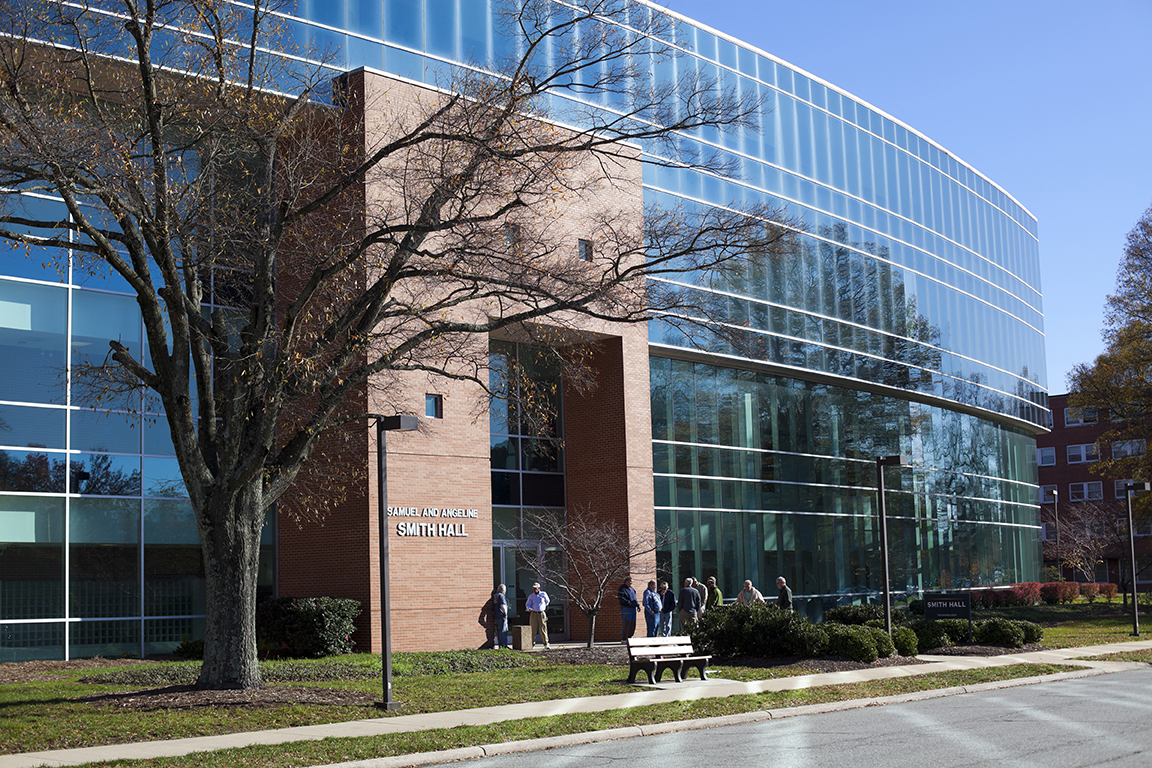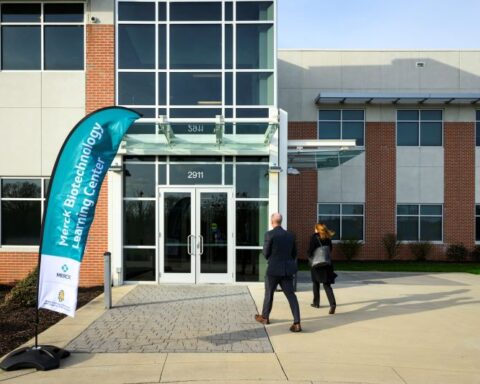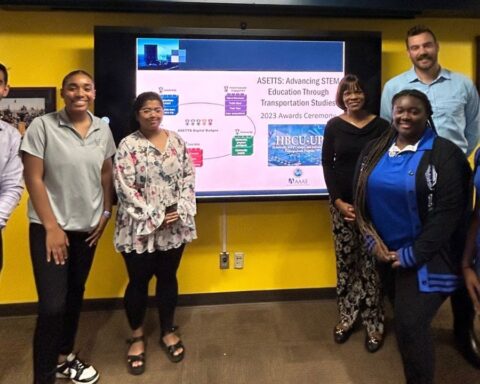By Jamie Crockett
North Carolina Agricultural and Technical State University was awarded a three-year $1.5 million NASA grant to establish an institute connected to the agency’s new Data Science Equity, Access, and Priority in Research and Education (DEAP) opportunity for historically Black colleges and universities.
As principal investigator (PI), Leila Hashemi Beni, Ph.D., an associate professor in the College of Science and Technology (CoST), will lead a team of researchers from N.C. A&T, Fayetteville State University and Elizabeth City State University to focus on “harnessing data science for flood monitoring and management.”
The team will analyze open-source remote sensing (RS) data that can better prepare North Carolina citizens for flood events. The team will analyze previous RS unmanned aerial vehicles and satellite data and geospatial data from past flooding events to first classify and identify the difference between permanent water levels and floodwater and develop cutting-edge methods and solutions to combine big data.
“Our work will primarily help provide timely and accurate information to decision makers,” said Hashemi Beni. “Our team will design, develop, evaluate and deploy machine learning-based approaches to better detect flood extent and impacts to built and non-built environments.”
The DEAP Institute will also prioritize creating a pipeline for undergraduate and graduate studies matriculation, providing STEM learning opportunities for undergraduate students to engage in research, encouraging youth participation from various communities in summer camps and related outreach activities, as well as for graduate students to enhance teaching skills.
The first year of the project will focus on education and upskilling. The team and NASA team for this project will develop, plan, and conduct in person virtual educational sessions and hands-on activities for students and faculty participating in the institute to facilitate skills development. The second year of the project is to design, develop and implement algorithms and the third year will focus on validation and demonstration.
The faculty members on the research team bring together an interdisciplinary approach with expertise in data science, statistics, geospatial analysis, human interactions, and environmental change. Hashemi Beni’s A&T co-PIs for the project are Hossein Sarrafzadeh, Ph.D., director of the Center of Excellence in Cybersecurity Research, Education and Outreach director, and Tamer Elbayoumi, Ph.D., assistant professor in data science, Department of Mathematics and Statistics in CoST. Trung Tran, Ph.D., assistant professor in geospatial science, and Mohamed Elbakary, Ph.D., associate professor in the Department of Mathematics, Computer Science and Engineering Technology are the project’s co-PIs from Fayetteville State University and Elizabeth City State University, respectively.
Establishing the DEAP Institute at A&T builds upon Hashemi Beni’s extensive research and collaborative projects in areas like remote sensing multimodal data fusion for flood response and management with various agencies such as the National Science Foundation, the National Oceanic and Atmospheric Administration and universities.
Hashemi Beni serves on the NC Flood Resiliency Blueprint: Vulnerability/Risk/Impact Technical Advisory Group. The Flood Resiliency Blueprint is a statewide initiative to develop an online decision support tool and associated planning to address flooding for communities in North Carolina’s River basins. She also serves as co-chair for the ISPRS LiDAR, Laser Altimetry and Sensor Integration.





